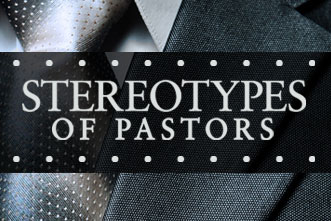In my last contribution to The Pastors Workshop, I examined a passage in 1 Thessalonians 2 where the Apostle Paul and his colleagues demonstrate an informed understanding of the cultural context in which they planted and shepherded the church in Thessalonica.
In particular, they were aware people would naturally associate them with the popular philosophers of the day, some of whom had honorable intentions, while others made a show of philosophy in order to advance their own position and financial well-being.
The example of Paul & Co. makes me wonder: What roles and positions in our cultural setting might be projected onto pastors?
If people learn you’re a clergyperson, what assumptions might they have about you and your ministry? What might folks in your church and community expect of you as a pastor because they associate you with people who serve in roles like yours?
Ideal Pastor.
Perhaps the most obvious stereotype by which we are measured is the ideal pastor—the omniscient, omnipresent, omniloving clergyperson who lives only in fiction and in nostalgia.
I am thinking, for example, of Father Tim in Jan Karon’s Mitford Years Series. He is the sort of compassionate, always-present pastor everyone wants to have, and that never can be found outside of Karon’s magical Mitford.
Doctor.
Many people think of churches as hospitals and pastors as doctors.
Thus, they expect you to help them get better when they’re not feeling well spiritually. They may even be willing to “pay” for your services by chipping in financially. But they have no expectation that your job involves helping them to get into the “healing business” as lay ministers of Christ.
Don’t Miss
They want expertise, delivered effectively, with an immediate result, but no ongoing obligation or relationship.
Psychologist.
In today’s hyper-therapeutic culture, many people expect pastors to be therapists, albeit a less expensive version.












